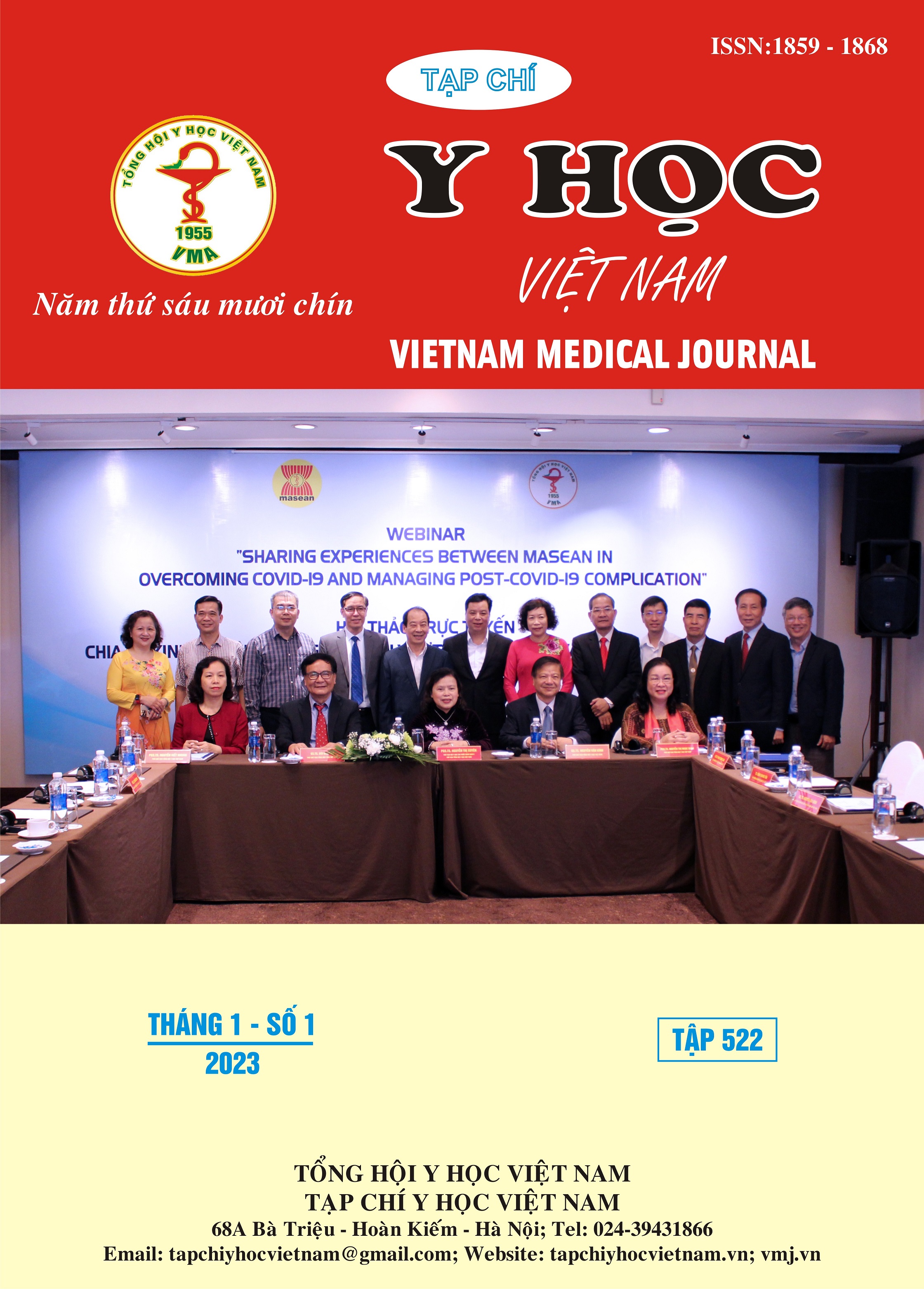REVIEW ON CHRONIC RHINOSINUSITIS IN THE ELDERLY
Main Article Content
Abstract
Chronic rhinosinusitis (CRS) in the elderly is often challenging to treat, each course of treatment is prolonged, and the disease often recurs because of underlying diseases such as diabetes, kidney failure, chronic bronchitis, and COPD., weakened immune system… with a higher risk of complications from acute inflammation. Treatment of CRS in the elderly has many views, especially regarding the long-term use of corticosteroids and antibiotics. To have a better overview of the treatment methods of CRS in the elderly and help otolaryngologists consider, evaluate, and give appropriate treatment indications for the elderly group with chronic rhinosinusitis, we conducted a review of CRS pathology in the elderly. Results: 36 articles met research standards. Long-term medical treatment with low-dose antibiotics, safe for the kidneys, is preferred. Age plays an essential role in the pathophysiology, symptoms, severity, and outcome of CRS treatment. Some related factors: The nasopharynx microbiota in patients over 65 who underwent differential endoscopic sinus surgery. Functional endoscopic sinus surgery in elderly subjects should still be performed when indicated. There was no difference in complication rates when risk factors were controlled (p = 0.89); however, the rate of postoperative infection was higher in the elderly group. Risk factors for complications in elderly patients undergoing endoscopic sinus surgery are uncontrolled comorbidities, especially diabetes and ischemic heart disease. SNOT-20 had a 64% improvement in symptom score at 3 months, 73% improvement at 6 months and 75% at 12 months, with very few intraoperative complications. QoL improved significantly after surgical treatment (p = 0.001) and had a successful response to treatment similar to younger patients (p = 0.74). Regarding the possibility of recurrence, in the multivariate analysis, there was no difference between the elderly and young groups.
Article Details
Keywords
chronic rhinosinusitis, the elderly, underlying diseases
References
2. Zhang Z, Adappa ND, Lautenbach E, et al. The effect of diabetes mellitus on chronic rhinosinusitis and sinus surgery outcome. Int Forum Allergy Rhinol. 2014;4(4):315-320. doi:10.1002/alr.21269
3. Mochizuki E, Matsuura S, Kubota T, et al. Sinobronchial allergic mycosis syndrome in an elderly male. Allergy Asthma Clin Immunol. 2019;15:35. doi:10.1186/s13223-019-0349-y
4. Merrill T, Kanaan A. Managing Chronic Rhinosinusitis with Nasal Polyps in the Elderly: Challenges and Solutions. Clin Interv Aging. 2022;17:685-698. doi:10.2147/CIA.S279765
5. Renteria AE, Mfuna Endam L, Desrosiers M. Do Aging Factors Influence the Clinical Presentation and Management of Chronic Rhinosinusitis? Otolaryngol Head Neck Surg. 2017;156(4):598-605. doi:10.1177/0194599817691258
6. Sohn KH, Song WJ, Park JS, et al. Risk Factors for Acute Exacerbations in Elderly Asthma: What Makes Asthma in Older Adults Distinctive? Allergy Asthma Immunol Res. 2020;12(3):443-453. doi:10.4168/aair.2020.12.3.443
7. Hwang CS, Lee HS, Kim SN, Kim JH, Park DJ, Kim KS. Prevalence and Risk Factors of Chronic Rhinosinusitis in the Elderly Population of Korea. Am J Rhinol Allergy. 2019;33(3):240-246. doi:10.1177/1945892418813822
8. Morse JC, Li P, Ely KA, et al. Chronic rhinosinusitis in elderly patients is associated with an exaggerated neutrophilic proinflammatory response to pathogenic bacteria. J Allergy Clin Immunol. 2019;143(3):990-1002.e6. doi:10.1016/j.jaci.2018.10.056
9. Leszczyńska J, Stryjewska-Makuch G, Ścierski W, Lisowska G. Bacterial Flora of the Nose and Paranasal Sinuses Among Patients Over 65 Years Old with Chronic Rhinosinusitis Who Underwent Endoscopic Sinus Surgery. Clin Interv Aging. 2020;15:207-215. doi:10.2147/CIA.S215917
10. Gardner JR, Campbell JB, Daigle O, King D, Kanaan A. Operative and postoperative outcomes in elderly patients undergoing endoscopic sinus surgery. Eur Arch Otorhinolaryngol. 2021;278(5):1471-1476. doi:10.1007/s00405-020-06453-2


